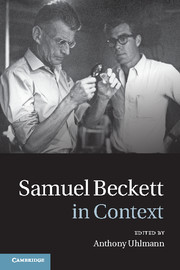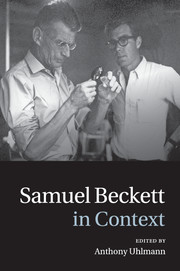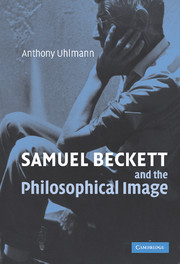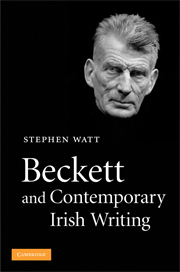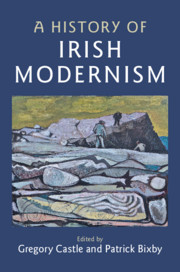Samuel Beckett and the Postcolonial Novel
Samuel Beckett has long been seen as a distinctly 'apolitical' and 'ahistorical' writer, but this reputation fails to do him justice. Placing Beckett's novels in the context of the newly-liberated Irish Free State, Patrick Bixby explores for the first time their confrontation with the legacies of both Irish nationalism and British imperialism. In doing so, he reveals Beckett's fiction as a remarkable example of how postcolonial writing addresses the relationships between private consciousness and public life, as well as those between the novel form and a cultural environment including not only the literary tradition, but also political speeches, national monuments, and anthropological studies. With special attention to these relationships, the study demonstrates Beckett's challenge to familiar narratives of personal identity and communal belonging, which makes his writing integral to understanding the history of the novel and the fate of modernism, in addition to the emergence of postcolonial literature.
- Places Beckett in the historical context of the Irish Free State
- Uncovers Beckett's political and nationalist contexts
- Focuses on Beckett's novels with in-depth new readings
Reviews & endorsements
"Bixby's invaluable contribution not only opens Beckett's work to a new understanding but offers new possibilities for thinking about postcolonial fiction beyond the Irish context and beyond the dour presumptions of Frederick Jameson's famous argument that third-world fiction will always generally lag behind its Western counterparts. Bixby proves, conclusively it seems to me, that a writer can be both relentlessly innovative and profoundly engaged with postcolonial conditions."
David Lloyd, Modern Philology
Product details
December 2009Hardback
9780521113885
246 pages
235 × 160 × 7 mm
0.53kg
3 b/w illus.
Available
Table of Contents
- Introduction: Beckett, Ireland, and the postcolonial novel
- 1. Beckett's book of youth: juvenility and the nation in Dream of Fair to Middling Women
- 2. Murphy abroad: postcolonial dislocation, the national imaginary, and the 'unhomely'
- 3. Watt kind of man are you? Anthropology, authenticity, and Ireland
- 4. Narrating the no-man's-land: deterritorializing Ireland and postcolonial identity in the Trilogy
- Index.


